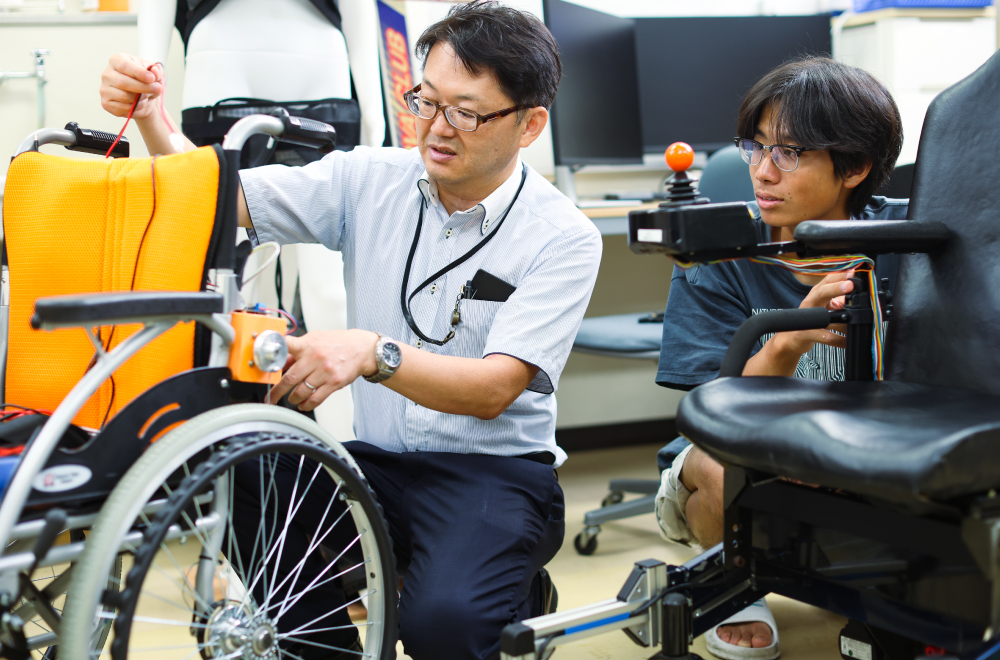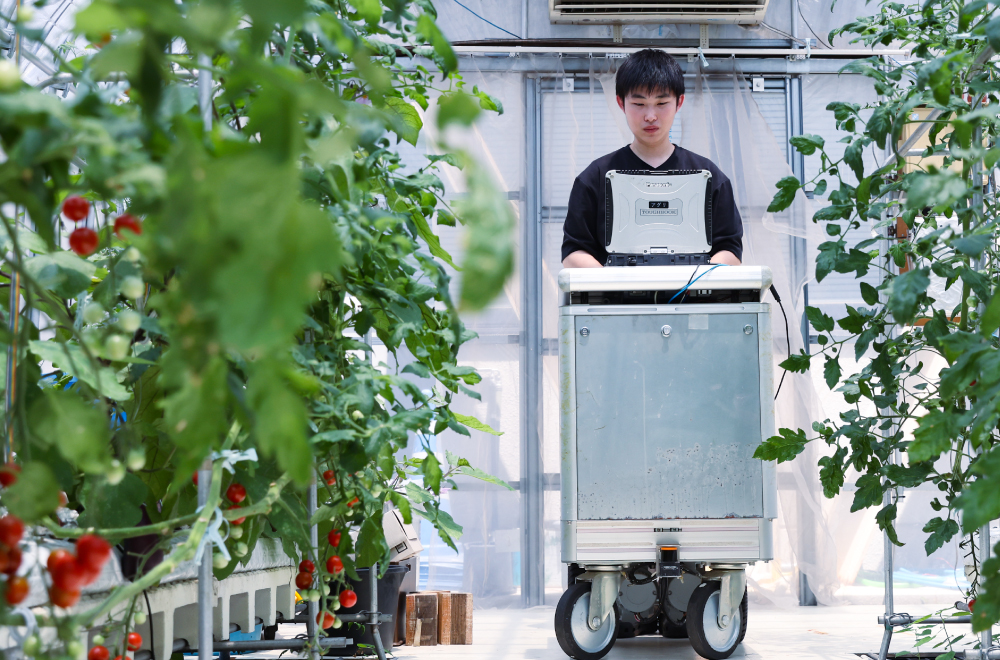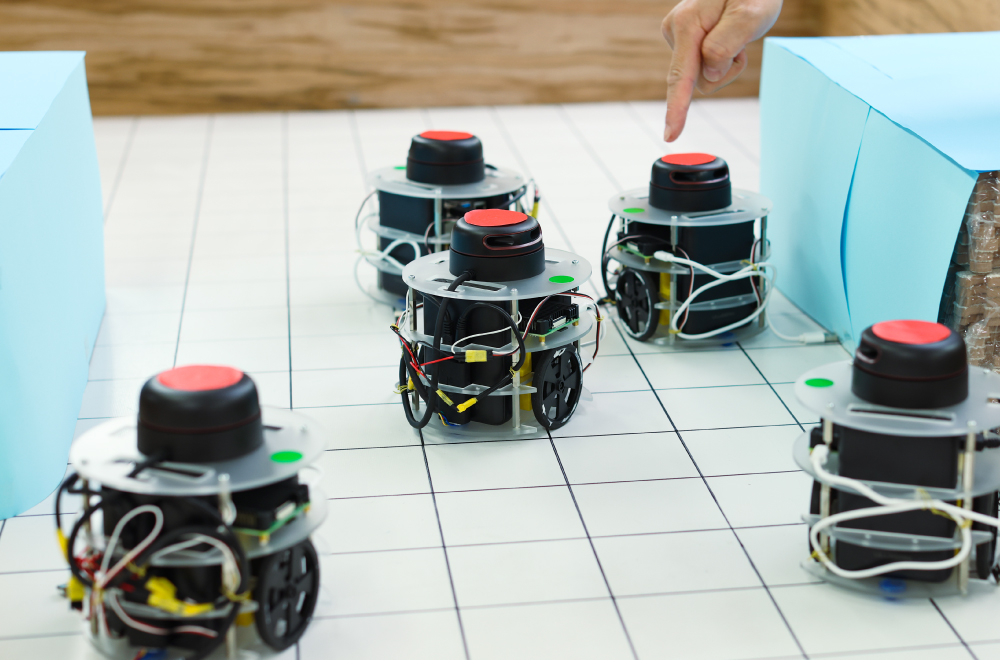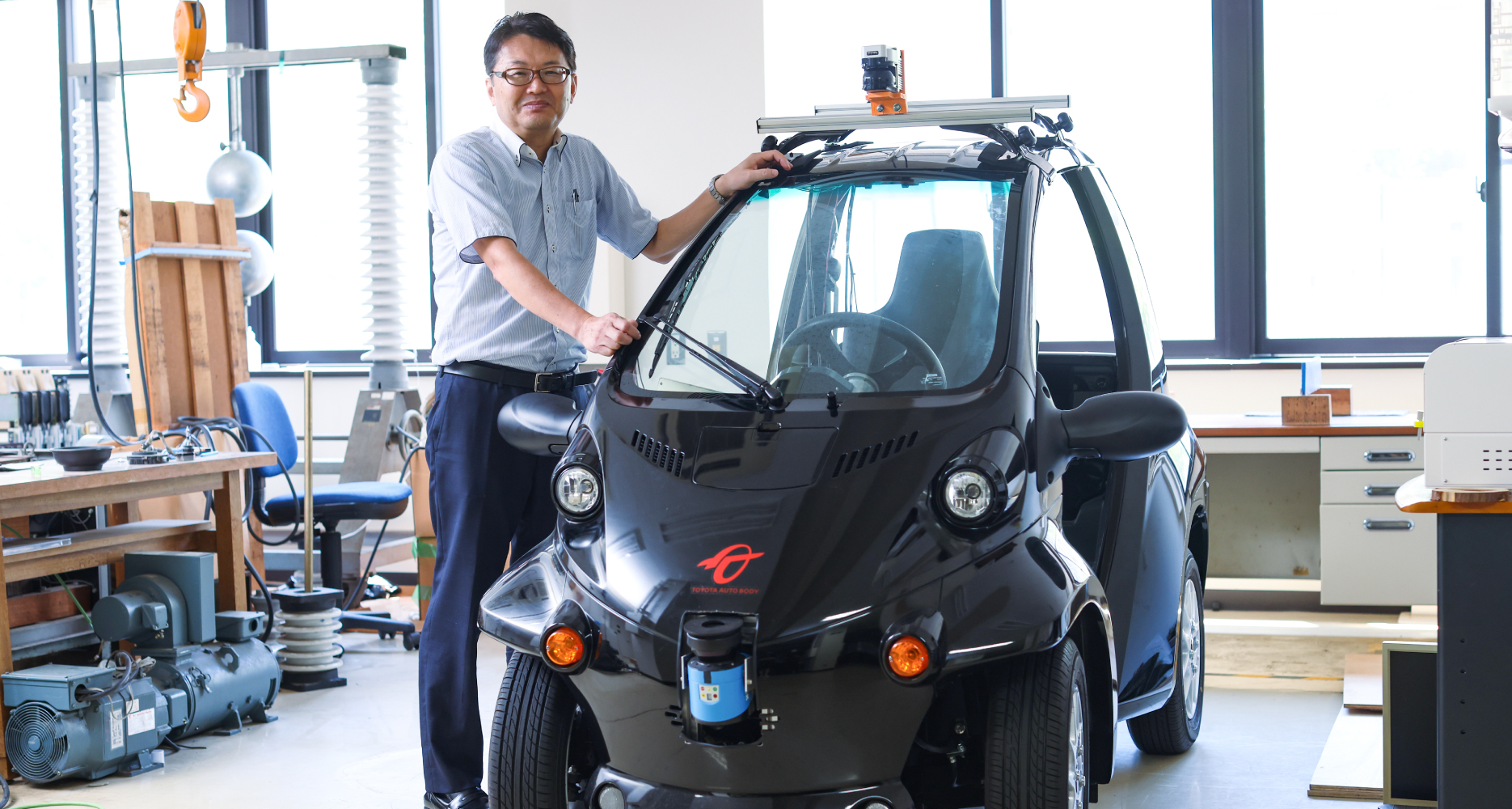
Seven Degree ProgramsElectrical, Electronic, and Physical Sciences Program
he program is composed of the Material Property Devices, Electrical Energy, Intelligent Electronic Circuits, Electrical and Electronic Systems, and related Physical Sciences fields. Its purpose is to deepen expertise in electrical engineering and the physical sciences related to electrical engineering, which are fundamental to the core of advanced technology societies. The program also aims to foster the problem-solving capabilities of highly skilled engineers and researchers through the integration of a broad perspective and interdisciplinary collaboration, contributing to the formation of a safe, secure, comfortable, and sustainable future society.
While building upon electrical engineering and related physical sciences, the program addresses the need for higher specialization and comprehensive problem-solving approaches. It focuses on the development of technologies that support the next-generation IoT society and advanced physical sciences, including:
- Electronic device development technologies
- Generation and efficient utilization of electrical energy
- Communication, measurement, and control system development
- Advanced measurement technologies
- Electronics circuit technologies that support these advancements
- Materials development for electronic devices
The program is designed to cultivate creative and highly capable individuals with strong research skills, advanced knowledge, and technology development abilities in these critical areas, enabling them to contribute to future innovations in electronics, energy, and communication systems.
- Target Fields of This Program
-
- Material Property Devices Field
- Electrical Energy Field
- Intelligent Electronic Circuits Field
- Electrical and Electronic Systems Field
- Related Physical Sciences Field
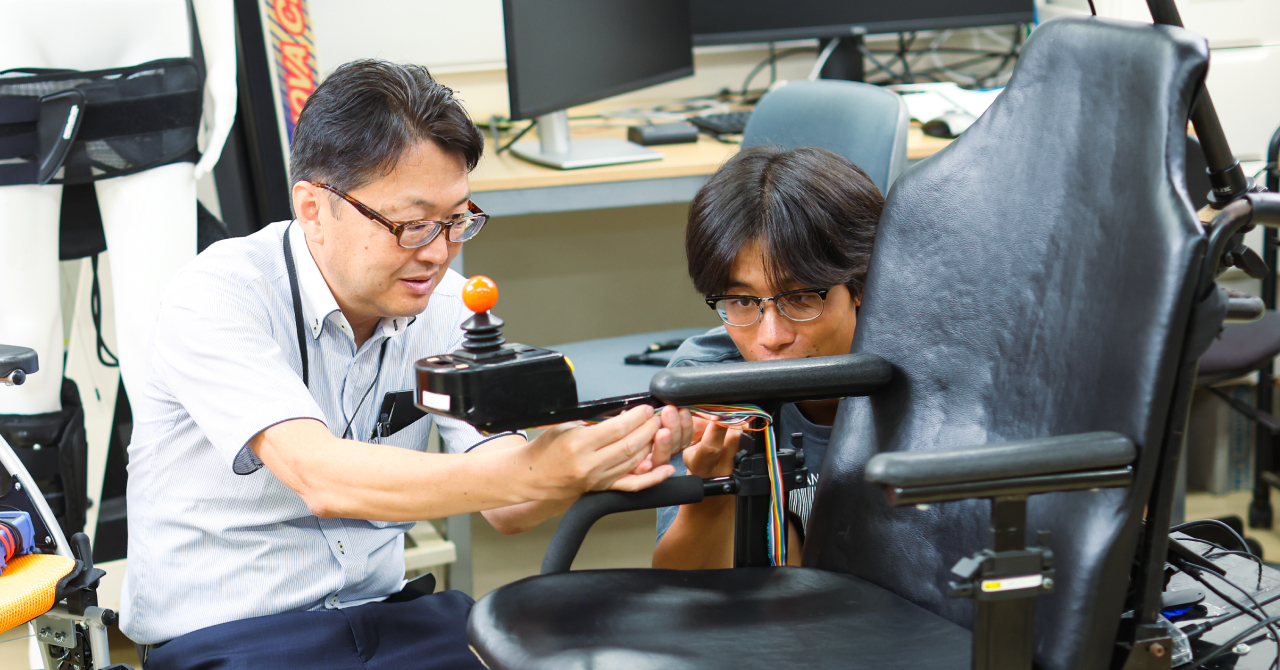
Engineering Applications of Intelligent Information Processing Functions for the Realization of a Convenient and Human-Friendly Smart Society
The Future Society Unveiled by the Fusion of Cyber and Physical
Recent advancements in artificial intelligence (AI) have been remarkable, gradually transforming our lives. The future society is expected to be one where AI, evolving in the cyber space, merges with the physical space, which includes humans. This fusion technology will lead to the creation of an ultra-smart society that is more convenient and human-friendly. At Tokushima University Graduate School, we are actively researching cyber-physical fusion technologies aimed at realizing Society 5.0.
From Basic Research to Social Implementation: The Application of Intelligent Information Processing Technologies
Intelligent information processing functions are built on various insights gained from basic research, and their applications span a wide range of fields. However, to connect basic research to real-world applications, it is essential to solve various challenges specific to each application field. We are approaching these challenges from the standpoint of engineering and manufacturing, with a particular focus on research related to AI and control systems. Specifically, we are working on the development of human-friendly support systems based on intelligent information processing technologies.
Aiming for a Society Where Everyone Can Move Freely
Vital activities necessary for life, such as sleep, eating, and excretion, are strongly linked to specific locations. Therefore, mobility, which connects places, is crucial for maintaining Quality of Life (QOL). However, this becomes difficult for those with decreased motor functions or disabilities. To address this, we are researching electric wheelchairs with safe driving assistance functions, aiming to enable people to move without discomfort or limitation. Using AI, we are developing human-friendly safe driving assistance systems that consider the operator’s intent, ensuring safe operation at all times. Additionally, we are exploring air pressure interfaces that would allow even ALS (Amyotrophic Lateral Sclerosis) or muscular dystrophy patients to operate electric wheelchairs.
Building a Human-Centered Support System Using AI
For individuals who are unfamiliar with operating electric wheelchairs or find the operation difficult, our system maximizes the reflection of the operator’s intent for smooth and safe movement. By recognizing potential dangers caused by mistakes or environmental recognition failures, we use AI and autonomous control to create a human-friendly support system for safe mobility. This research is expected to improve the operability of electric wheelchairs and expand their range of use, thereby enhancing the QOL of a wider range of individuals.
The Evolution of AI Technology and the Realization of a Richer Society
By proposing and researching human support systems through engineering based on AI technology, we aim to make everyday objects intelligently interact with humans. This research will bring us closer to realizing a super-smart society that enriches human life. With the ongoing evolution of AI technology, we are optimistic that these advancements will create a future where AI systems serve to improve the lives of individuals and contribute to a richer, more convenient world.
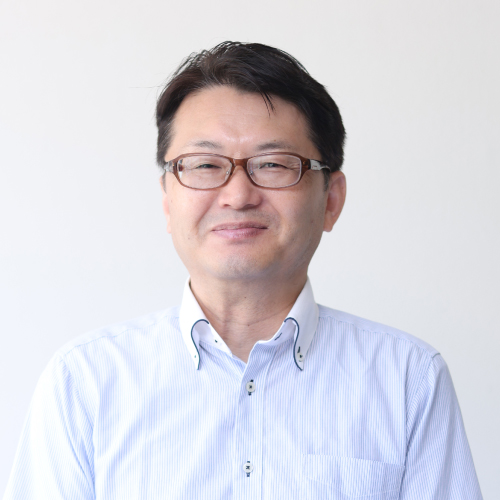
Yasuno TakashiProfessor
Research, not only in the doctoral program but in general, can perhaps be compared to an endless adventure. There will surely be many times when you encounter various obstacles and struggle with challenges, and unexpected developments may stir your intellectual curiosity. I hope that you embrace this adventure of research with enthusiasm. By engaging with diverse researchers and fields, I also expect you to broaden your perspectives and grow into a researcher who can approach problems from multiple viewpoints.
